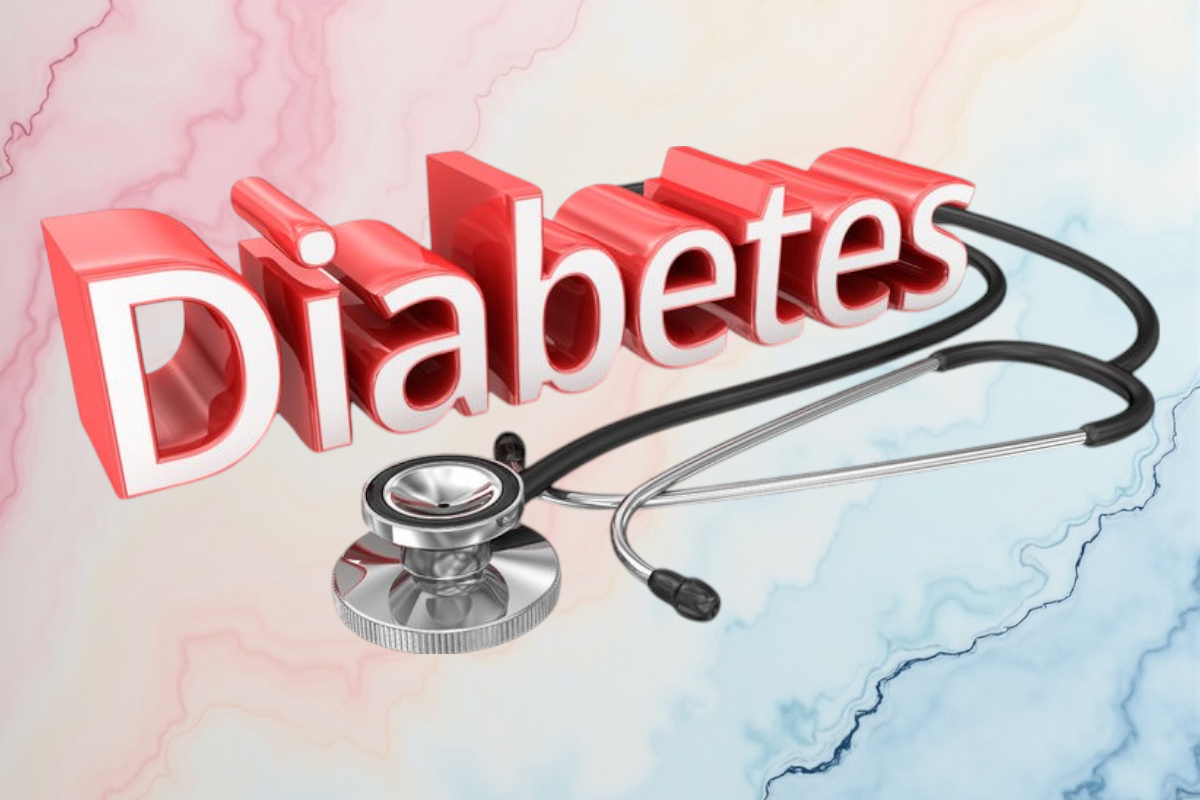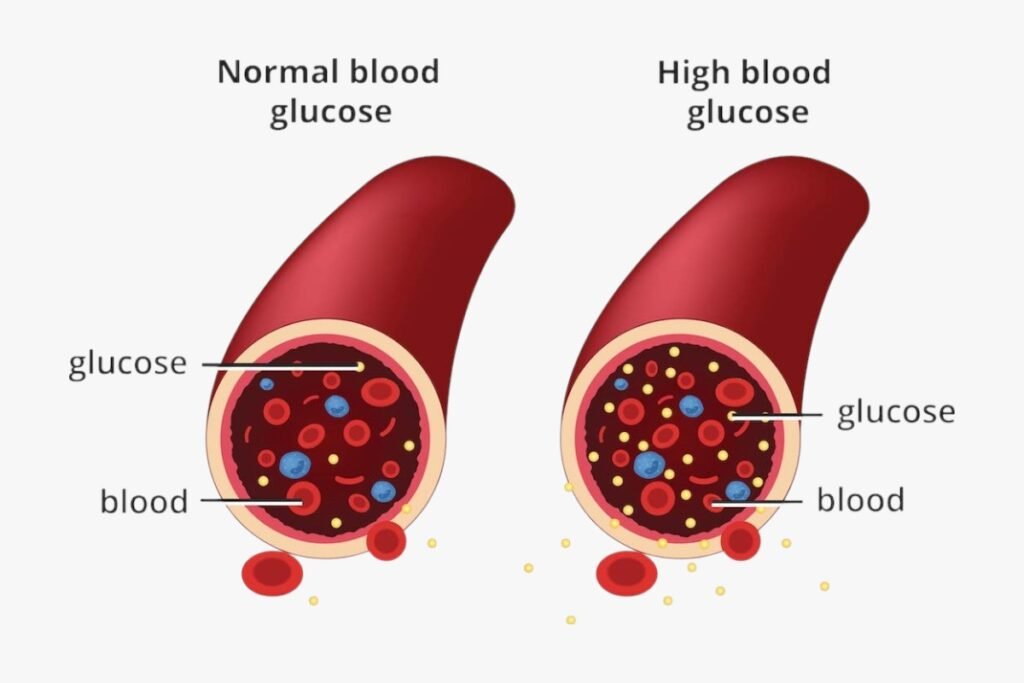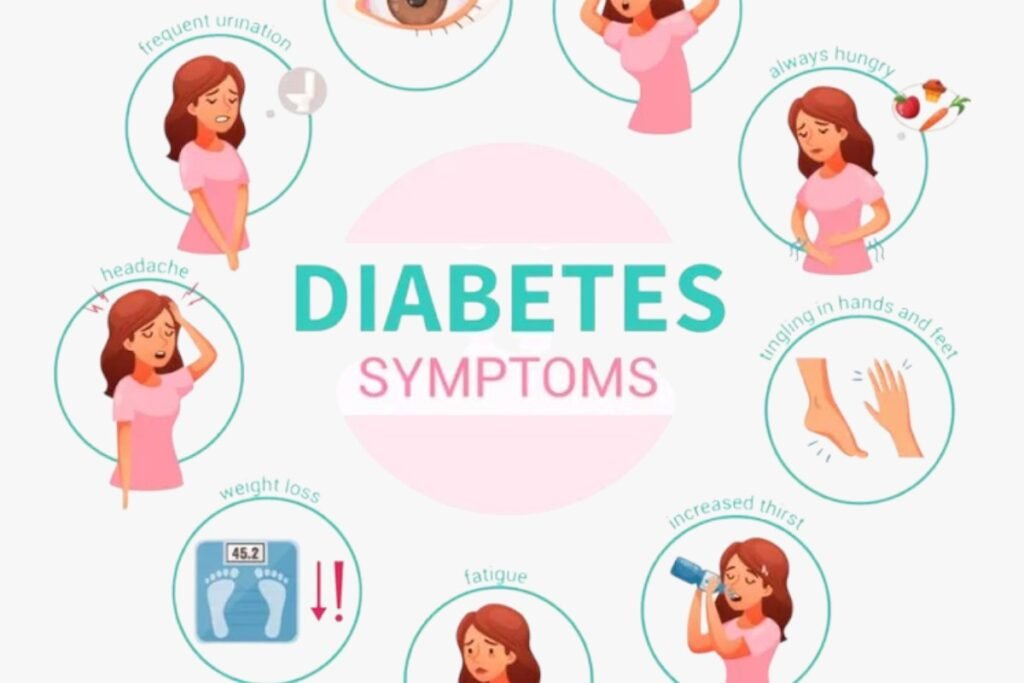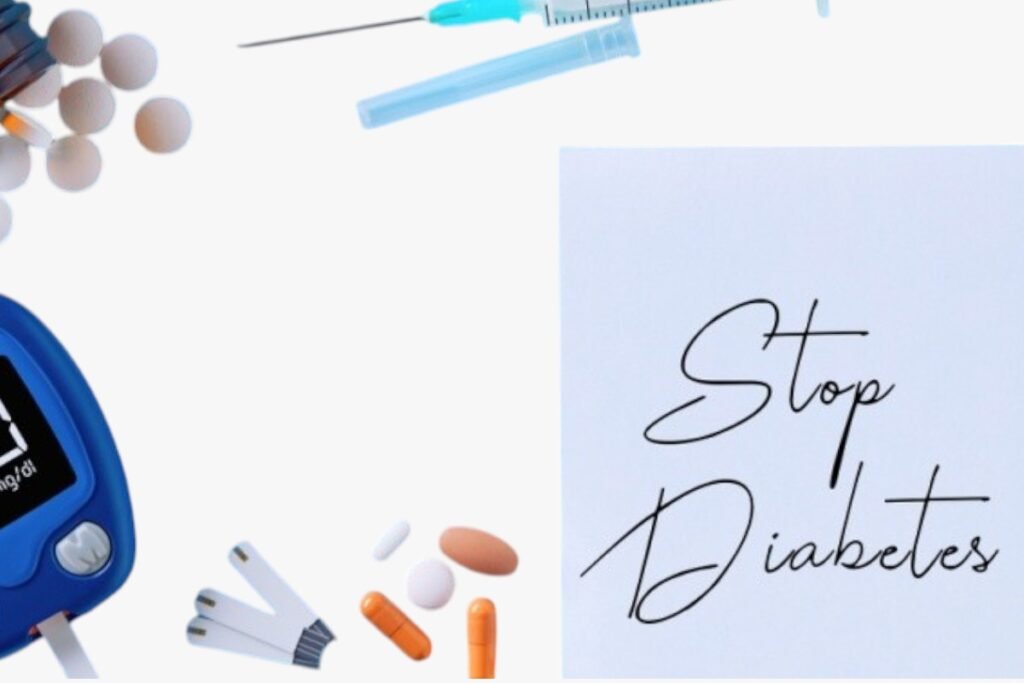
Recognizing Early Diabetes Symptoms: Don’t Ignore them
Hello, TheraMedicare Health Buddies! How are you doing today? Hope you’re always fit and enthusiastic! This time, we’re going to talk about a super important topic that’s often overlooked by many people: diabetes. This disease is often dubbed a “silent killer” because its early symptoms are frequently subtle, leading many to be unaware that they’re at risk or even already have it. Yet, the sooner we know, the easier it is to manage and the risk of serious complications can be minimized!
Don’t let regret set in because you found out too late. Let’s learn together about the early signs of diabetes that often appear. By doing so, we can be more vigilant and act quickly. This article will help you understand more about diabetes symptoms, why early detection is crucial, and how a blood glucose tester is key to prevention and monitoring.
What Exactly is Diabetes? Why Do We Need to Be Wary?
Before diving into the symptoms, let’s understand what diabetes is. Diabetes Mellitus, or more commonly known as diabetes, is a chronic condition where the level of sugar (glucose) in the blood is too high. Glucose is the main source of energy for our body cells. However, to enter the cells, glucose needs the help of a hormone called insulin.
Insulin is like a “key” that opens the cell doors for glucose to enter. In people with diabetes, there are two possible problems:
- The body doesn’t produce enough insulin (this usually happens in Type 1 Diabetes).
- The body cannot use insulin effectively (this is the most common, called Type 2 Diabetes).
The result? Sugar builds up in the bloodstream and cannot be used by cells, leading to various serious health problems if left untreated. Diabetes complications can be terrifying, ranging from nerve damage, heart problems, kidney issues, to blindness and amputation. Scary, right? That’s why early detection is so important!

Early Diabetes Symptoms That Are Often Missed: Let’s Take a Closer Look!
As mentioned, diabetes often arrives without a “knock” with subtle symptoms at first. But, if we’re observant, there are some body signals worth noting:
1. Excessive Thirst (Polydipsia)
Have you ever felt extremely thirsty even after just drinking a glass of water? Or does your throat constantly feel dry, making you want to drink again and again? Well, this is one of the most common diabetes symptoms.
Why does this happen? When our blood sugar levels are high, the kidneys work hard to excrete excess sugar through urine. This process draws fluid from the body, causing dehydration. As a result, the brain sends strong thirst signals to replenish lost fluids.
2. Frequent Urination, Especially at Night (Polyuria)
As a result of that excessive thirst, we naturally drink more often, right? And eventually, we end up urinating more frequently. This isn’t just during the day, but also at night, even disrupting your sleep. You used to sleep soundly all night, but now you’re constantly getting up to go to the bathroom? Be careful, that could be a signal!
The reason is similar: The kidneys work extra hard to excrete excess sugar through urine. This drastically increases urine production.
3. Increased Appetite but Weight Loss (Polyphagia)
Strange, isn’t it? You’ve eaten a large meal, but an hour later you’re hungry again? Some even experience a drastic increase in appetite, but their weight actually drops significantly for no clear reason (e.g., not on a diet or doing intense exercise). This also needs to be watched out for.
The explanation: Even though there’s a lot of sugar in the blood, the body’s cells cannot absorb it to convert it into energy due to a lack of insulin or insulin resistance. The body thinks it’s starving, so it sends “hunger” signals to the brain. Because the body isn’t getting enough energy from glucose, it starts burning fat and muscle for energy, leading to weight loss.
4. Easy Fatigue and Weakness Without Clear Reason
You used to be energetic, but now you get tired and weak very easily, even though your activity hasn’t increased? Sometimes you might feel completely drained. This can also be an early sign of diabetes that is often overlooked.
This happens because: Similar to the previous point, your body’s cells aren’t getting the glucose they need for energy. As a result, you feel fatigued and listless.
5. Blurred or Hazy Vision
Has your vision started to become blurry or hazy, even though it was fine before and you had no eye problems? This could be one of the symptoms of diabetes. High blood sugar can affect the eye’s lens, causing swelling and changes in shape, which results in unfocused vision. If left untreated, this can trigger serious eye problems like diabetic retinopathy, leading to blindness.
6. Slow-Healing Wounds and Recurrent Infections
If you have small cuts on your skin (e.g., a knife scratch or a mosquito bite) that take a very long time to heal, or you frequently experience fungal infections (e.g., in the genital area) or other skin infections, this could be a sign of high blood sugar. High blood sugar can damage blood vessels and nerves, hindering blood flow and nutrient delivery to the wound area, and weakening the immune system.
7. Tingling or Numbness in Hands and Feet (Neuropathy)
Have you ever felt tingling, numbness, or even burning pain in your hands or feet without a clear cause? This could be an early sign of nerve damage due to uncontrolled high blood sugar, a condition called diabetic neuropathy.
The Importance of Early Detection: Don’t Wait Until It’s Severe!
Perhaps you’ve read the symptoms above and some of them “click” with your condition. Don’t panic just yet! These symptoms can indeed be caused by other conditions. But, if you experience a combination of several of these symptoms, or even just one but it’s quite bothersome, don’t delay taking action!
Early detection is the main key to managing diabetes. The sooner you know, the sooner you can take steps:
- Start lifestyle changes: Healthy diet, regular exercise.
- Get appropriate medical treatment: From a doctor or nutritionist.
- Prevent serious complications: Such as heart, kidney, eye, and nerve problems.
Remember, diabetes is not the end of everything. With proper treatment and discipline, people with diabetes can still live a quality and productive life.

Early Detection is Easy! Get to Know Your Blood Glucose Tester
Instead of just guessing and creating unnecessary worry, it’s better to confirm your blood sugar levels! One of the easiest and quickest ways to monitor blood sugar is by using a blood glucose tester.
Why is a Blood Glucose Tester Important?
- Practical and Easy to Use: You can check your blood sugar yourself at home, whenever you want. No need to bother going to a clinic every time.
- Routine Monitoring: With this device, you can routinely monitor your blood sugar fluctuations, whether after meals, before meals, or at specific times recommended by your doctor.
- Accurate Information: Provides clear numbers about your blood sugar levels, so you and your doctor can make appropriate decisions regarding treatment.
- Self-Motivation: Seeing your blood sugar numbers directly can be a strong motivation to be more disciplined in maintaining a healthy diet and lifestyle.
- Early Problem Detection: If your blood sugar numbers are often high, this is a strong signal to immediately consult with a medical professional.
Get your own blood glucose tester and make it your best friend in maintaining health. Many brands and types of blood glucose testers are available on the market at varying prices, so choose one that suits your needs and budget.

When Should You Get Yourself Checked?
If you have one or more of the symptoms mentioned above, or if you have risk factors for diabetes (e.g., family history of diabetes, overweight/obesity, inactive lifestyle, age over 45), it is highly recommended to immediately check your blood sugar levels. You can start with a random blood sugar test or a fasting blood sugar test at the nearest laboratory, or use your personal blood glucose tester for initial monitoring.
Don’t delay! Health is our greatest investment. By recognizing early symptoms and acting quickly, we can protect ourselves from the threat of diabetes and live healthier lives.
Hope this information is useful, TheraMedicare Health Buddies! Let’s maintain our health together and make early detection a lifestyle.
What do you think, have you started experiencing any of the symptoms above? Feel free to share your experiences in the comments section!
